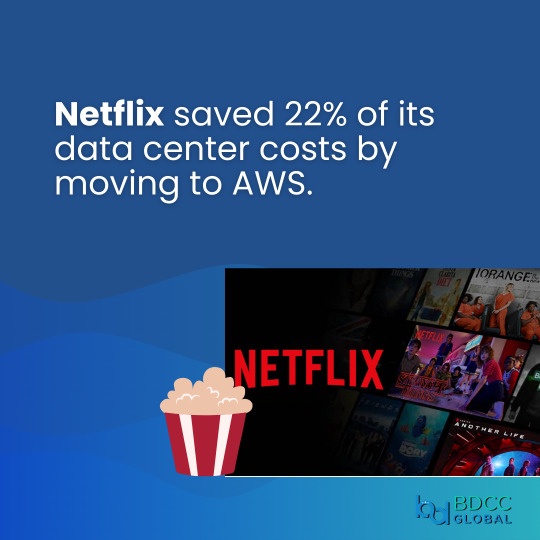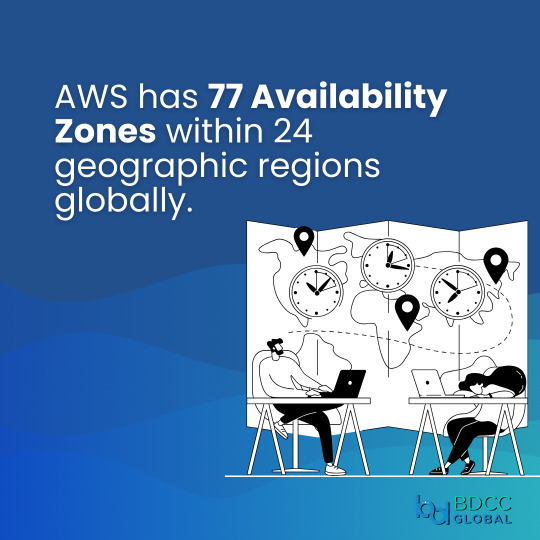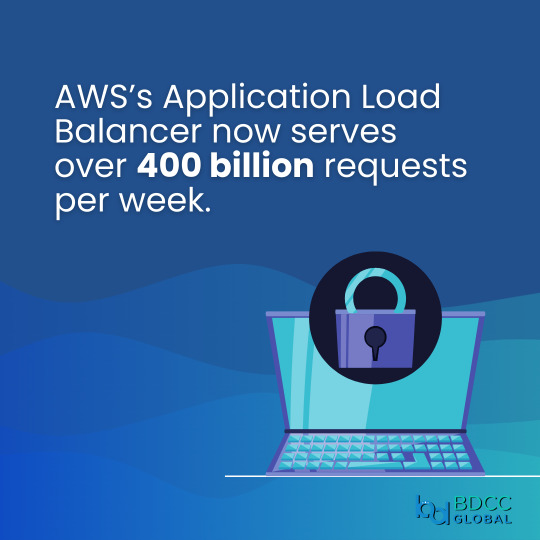#DevOps Service
Explore tagged Tumblr posts
Text

Are you falling behind in your e-commerce game? commercetools can be your savior.
Our commercetools development services can fulfill your e-commerce needs, including:
High customization: Customize your store as per your brand image
Best-of-breed features: Take the most out of the best tools to provide a smooth shopping experience
Less risk: We help you overcome common errors
Faster TTM: Get your store up and running quicker
Let’s connect and give your e-commerce store the experience you want
https://www.altdigital.tech/about-us/contact-us
#commercetools #commercetoolsdevelopment #commercetoolsservices #commercetoolsdevelopmentservices #ecommerce #ecommerceservices
#it service provider#software devops service#digital strategy consultant#devops service#web development#software#commerce tools#digital transformation consultant#digital customer experience services
2 notes
·
View notes
Text
Unlock Agility and Automation with Tailored Cloud and DevOps Services
Our expert cloud and DevOps services streamline development, automate workflows, and improve scalability—empowering your team to innovate faster and reduce time-to-market. Transform your infrastructure with solutions designed for speed, efficiency, and growth.
0 notes
Text

Impressico Business Solutions is a trusted DevOps Consulting Company delivering end-to-end solutions to streamline development and operations. Our experts enhance collaboration, automate workflows, and boost deployment speed. With a focus on agility and scalability, we help businesses achieve faster go-to-market and sustained digital growth through tailored DevOps strategies.
#DevOps Consulting Company#DevOpsConsultingCompany#DevOps Outsourcing Company#Cloud Consulting Company#DevOps Service Providers#DevOps#DevOps Consulting#DevOps Service
0 notes
Text
Discover how DevOps consulting company, including Impressico Business Solutions, can elevate your software development and IT operations. Join them as they explore essential DevOps service offerings and consulting services designed to enhance efficiency, collaboration, and productivity for businesses on their digital transformation journey. Tune in!
0 notes
Text
Cloud Native Security Safeguarding Your Data In The Digital Age.
Explore cloud-native security strategies to protect digital data, emphasizing integrated solutions and a proactive security-first approach in the cloud era.
Know more - https://optit.in/cloud-native-security-safeguarding-your-data-in-the-digital-age/

#cloud migration#consulting#devops#it infrastructure#devops service#cloud infrastructure#optit#cloud cost optimization#infrastructure management
0 notes
Text
Leading Devops Service Company - Polyxer System
We deliver unparalleled custom DevOps services to help businesses gain advantages of DevOps culture and experience optimum acceleration in implementation.
Polyxer Systems is one of the well-recognized DevOps services providing companies equipped with the team holding expertise and knowledge of the Azure platform that enables robust infrastructure development for business.
Know Details: Devops Service
0 notes
Text
A Comprehensive Guide to Deploy Azure Kubernetes Service with Azure Pipelines

A powerful orchestration tool for containerized applications is one such solution that Azure Kubernetes Service (AKS) has offered in the continuously evolving environment of cloud-native technologies. Associate this with Azure Pipelines for consistent CI CD workflows that aid in accelerating the DevOps process. This guide will dive into the deep understanding of Azure Kubernetes Service deployment with Azure Pipelines and give you tips that will enable engineers to build container deployments that work. Also, discuss how DevOps consulting services will help you automate this process.
Understanding the Foundations
Nowadays, Kubernetes is the preferred tool for running and deploying containerized apps in the modern high-speed software development environment. Together with AKS, it provides a high-performance scale and monitors and orchestrates containerized workloads in the environment. However, before anything, let’s deep dive to understand the fundamentals.
Azure Kubernetes Service: A managed Kubernetes platform that is useful for simplifying container orchestration. It deconstructs the Kubernetes cluster management hassles so that developers can build applications instead of infrastructure. By leveraging AKS, organizations can:
Deploy and scale containerized applications on demand.
Implement robust infrastructure management
Reduce operational overhead
Ensure high availability and fault tolerance.
Azure Pipelines: The CI/CD Backbone
The automated code building, testing, and disposition tool, combined with Azure Kubernetes Service, helps teams build high-end deployment pipelines in line with the modern DevOps mindset. Then you have Azure Pipelines for easily integrating with repositories (GitHub, Repos, etc.) and automating the application build and deployment.
Spiral Mantra DevOps Consulting Services
So, if you’re a beginner in DevOps or want to scale your organization’s capabilities, then DevOps consulting services by Spiral Mantra can be a game changer. The skilled professionals working here can help businesses implement CI CD pipelines along with guidance regarding containerization and cloud-native development.
Now let’s move on to creating a deployment pipeline for Azure Kubernetes Service.
Prerequisites you would require
Before initiating the process, ensure you fulfill the prerequisite criteria:
Service Subscription: To run an AKS cluster, you require an Azure subscription. Do create one if you don’t already.
CLI: The Azure CLI will let you administer resources such as AKS clusters from the command line.
A Professional Team: You will need to have a professional team with technical knowledge to set up the pipeline. Hire DevOps developers from us if you don’t have one yet.
Kubernetes Cluster: Deploy an AKS cluster with Azure Portal or ARM template. This will be the cluster that you run your pipeline on.
Docker: Since you’re deploying containers, you need Docker installed on your machine locally for container image generation and push.
Step-by-Step Deployment Process
Step 1: Begin with Creating an AKS Cluster
Simply begin the process by setting up an AKS cluster with CLI or Azure Portal. Once the process is completed, navigate further to execute the process of application containerization, and for that, you would need to create a Docker file with the specification of your application runtime environment. This step is needed to execute the same code for different environments.
Step 2: Setting Up Your Pipelines
Now, the process can be executed for new projects and for already created pipelines, and that’s how you can go further.
Create a New Project
Begin with launching the Azure DevOps account; from the screen available, select the drop-down icon.
Now, tap on the Create New Project icon or navigate further to use an existing one.
In the final step, add all the required repositories (you can select them either from GitHub or from Azure Repos) containing your application code.
For Already Existing Pipeline
Now, from your existing project, tap to navigate the option mentioning Pipelines, and then open Create Pipeline.
From the next available screen, select the repository containing the code of the application.
Navigate further to opt for either the YAML pipeline or the starter pipeline. (Note: The YAML pipeline is a flexible environment and is best recommended for advanced workflows.).
Further, define pipeline configuration by accessing your YAML file in Azure DevOps.
Step 3: Set Up Your Automatic Continuous Deployment (CD)
Further, in the next step, you would be required to automate the deployment process to fasten the CI CD workflows. Within the process, the easiest and most common approach to execute the task is to develop a YAML file mentioning deployment.yaml. This step is helpful to identify and define the major Kubernetes resources, including deployments, pods, and services.
After the successful creation of the YAML deployment, the pipeline will start to trigger the Kubernetes deployment automatically once the code is pushed.
Step 4: Automate the Workflow of CI CD
Now that we have landed in the final step, it complies with the smooth running of the pipelines every time the new code is pushed. With the right CI CD integration, the workflow allows for the execution of continuous testing and building with the right set of deployments, ensuring that the applications are updated in every AKS environment.
Best Practices for AKS and Azure Pipelines Integration
1. Infrastructure as Code (IaC)
- Utilize Terraform or Azure Resource Manager templates
- Version control infrastructure configurations
- Ensure consistent and reproducible deployments
2. Security Considerations
- Implement container scanning
- Use private container registries
- Regular security patch management
- Network policy configuration
3. Performance Optimization
- Implement horizontal pod autoscaling
- Configure resource quotas
- Use node pool strategies
- Optimize container image sizes
Common Challenges and Solutions
Network Complexity
Utilize Azure CNI for advanced networking
Implement network policies
Configure service mesh for complex microservices
Persistent Storage
Use Azure Disk or Files
Configure persistent volume claims
Implement storage classes for dynamic provisioning
Conclusion
Deploying the Azure Kubernetes Service with effective pipelines represents an explicit approach to the final application delivery. By embracing these practices, DevOps consulting companies like Spiral Mantra offer transformative solutions that foster agile and scalable approaches. Our expert DevOps consulting services redefine technological infrastructure by offering comprehensive cloud strategies and Kubernetes containerization with advanced CI CD integration.
Let’s connect and talk about your cloud migration needs
2 notes
·
View notes
Text
We provide skilled middle and senior-level team members on 3+ month contracts, working 40 hours per week and aligning with your time zone. Our DevOps team ensures rapid response times, from 30 minutes to 4 hours during business hours, and under 15 minutes for 24/7 support. With access to in-house experts and high uptime guarantees for production environments, we deliver reliable, tailored solutions.
2 notes
·
View notes
Text
Alt Digital Technologies Pvt. Ltd
Evolution of Alt Digital Technologies Pvt. Ltd
Back in 2015 when Alt Digital Technologies Pvt. Ltd. started its journey was known as ALT Commerce. In its early days, the company was offering e-commerce solutions powered by Oracle Commerce (ATG). In 2021, the company rebranded itself and known as Alt Digital Technologies Pvt. Ltd. and shifted its focus to Digital Customer Experience (DCX) services using AEM, Salesforce, and commercetools. As a software consulting company, we help businesses of all sizes and every industry to make proper use of technology and get benefits. We have more than 10 years of experience in the software development field and a global client base with some renowned brand names. We serve our services to B2B, B2C, D2C, and more with our customized solutions. Over time, we expanded our service offerings to digital marketing services, integration services (MuleSoft), and mobile app development services (Android and iOS). We provide a full-package solution to our clients with market standard prices.
Contact us today for more information
#software devops service#digital strategy consultant#it service provider#digital transformation consultant#web development#software#commerce tools#it consulting services#digital customer experience services#devops service
1 note
·
View note
Text
GitOps: Automating Infrastructure with Git-Based Workflows

In today’s cloud-native era, automation is not just a convenience—it’s a necessity. As development teams strive for faster, more reliable software delivery, GitOps has emerged as a game-changing methodology. By using Git as the single source of truth for infrastructure and application configurations, GitOps enables teams to automate deployments, manage environments, and scale effortlessly. This approach is quickly being integrated into modern DevOps services and solutions, especially as the demand for seamless operations grows.
What is GitOps?
GitOps is a set of practices that use Git repositories as the source of truth for declarative infrastructure and applications. Any change to the system—whether a configuration update or a new deployment—is made by modifying Git, which then triggers an automated process to apply the change in the production environment. This methodology bridges the gap between development and operations, allowing teams to collaborate using the same version control system they already rely on.
With GitOps, infrastructure becomes code, and managing environments becomes as easy as managing your codebase. Rollbacks, audits, and deployments are all handled through Git, ensuring consistency and visibility.
Real-World Example of GitOps in Action
Consider a SaaS company that manages multiple Kubernetes clusters across environments. Before adopting GitOps, the operations team manually deployed updates, which led to inconsistencies and delays. By shifting to GitOps, the team now updates configurations in a Git repo, which triggers automated pipelines that sync the changes across environments. This transition reduced deployment errors by 70% and improved release velocity by 40%.
GitOps and DevOps Consulting Services
For companies seeking to modernize their infrastructure, DevOps consulting services provide the strategic roadmap to implement GitOps successfully. Consultants analyze your existing systems, assess readiness for GitOps practices, and help create the CI/CD pipelines that connect Git with your deployment tools. They ensure that GitOps is tailored to your workflows and compliance needs.
To explore how experts are enabling seamless GitOps adoption, visit DevOps consulting services offered by Cloudastra.
GitOps in Managed Cloud Environments
GitOps fits perfectly into devops consulting and managed cloud services, where consistency, security, and scalability are top priorities. Managed cloud providers use GitOps to ensure that infrastructure remains in a desired state, detect drifts automatically, and restore environments quickly when needed. With GitOps, they can roll out configuration changes across thousands of instances in minutes—without manual intervention.
Understand why businesses are increasingly turning to devops consulting and managed cloud services to adopt modern deployment strategies like GitOps.
GitOps and DevOps Managed Services: Driving Operational Excellence
DevOps managed services teams are leveraging GitOps to bring predictability and traceability into their operations. Since all infrastructure definitions and changes are stored in Git, teams can easily track who made a change, when it was made, and why. This kind of transparency reduces risk and improves collaboration between developers and operations.
Additionally, GitOps enables managed service providers to implement automated recovery solutions. For example, if a critical microservice is accidentally deleted, the Git-based controller recognizes the drift and automatically re-deploys the missing component to match the declared state.
Learn how DevOps managed services are evolving with GitOps to support enterprise-grade reliability and control.
GitOps in DevOps Services and Solutions
Modern devops services and solutions are embracing GitOps as a core practice for infrastructure automation. Whether managing multi-cloud environments or microservices architectures, GitOps helps teams streamline deployments, improve compliance, and accelerate recovery. It provides a consistent framework for both infrastructure as code (IaC) and continuous delivery, making it ideal for scaling DevOps in complex ecosystems.
As organizations aim to reduce deployment risks and downtime, GitOps offers a predictable and auditable solution. It is no surprise that GitOps has become an essential part of cutting-edge devops services and solutions.
As Alexis Richardson, founder of Weaveworks (the team that coined GitOps), once said:
"GitOps is Git plus automation—together they bring reliability and speed to software delivery."
Why GitOps Matters More Than Ever
The increasing complexity of cloud-native applications and infrastructure demands a method that ensures precision, repeatability, and control. GitOps brings all of that and more by shifting infrastructure management into the hands of developers, using tools they already understand. It reduces errors, boosts productivity, and aligns development and operations like never before.
As Kelsey Hightower, a renowned DevOps advocate, puts it:
"GitOps takes the guesswork out of deployments. Your environment is only as good as what’s declared in Git."
Final Thoughts
GitOps isn’t just about using Git for configuration—it’s about redefining how teams manage and automate infrastructure at scale. By integrating GitOps with your DevOps strategy, your organization can gain better control, faster releases, and stronger collaboration across the board.
Ready to modernize your infrastructure with GitOps workflows?Please visit Cloudastra DevOps as a Services if you are interested to study more content or explore our services. Our team of experienced devops services is here to help you turn innovation into reality—faster, smarter, and with measurable outcomes.
1 note
·
View note
Text
Secure and Scalable Cloud Server Management at Atcuality
For businesses seeking to enhance scalability and maintain top-tier security, Atcuality provides unparalleled cloud server management services. Our solutions cover all aspects of cloud server maintenance, including load balancing, patch management, data backups, and disaster recovery planning. Our experienced professionals work with cutting-edge tools to ensure that your servers are secure, efficient, and scalable to meet changing business needs. Whether you operate in e-commerce, finance, or technology, we tailor our services to align with your operational goals. With Atcuality as your trusted partner, you can focus on driving growth while we handle the technical complexities of cloud management.
#seo marketing#seo services#artificial intelligence#azure cloud services#seo agency#digital marketing#seo company#iot applications#ai powered application#amazon web services#ai applications#virtual reality#augmented reality agency#augmented human c4 621#augmented and virtual reality market#augmented intelligence#augmented reality#cloud security services#cloud computing#cloud services#cloud service provider#cloud server hosting#software#devops#information technology#cash collection application#task management#blockchain#web developing company#web development
2 notes
·
View notes
Text
9 Reasons Why DevOps is Essential for Modern Software Development
Close to 99% of people who have used DevOps said that it had a positive impact on their organisation. DevOps is a methodology that bridges the gap between development and operations, enabling faster releases, better collaboration, and improved software quality.
DevOps has revolutionised software development as traditional software development models often struggle with slow deployments, miscommunication between teams, and operational bottlenecks.
DevOps is way more than just a tool, it is a cultural shift that focuses on automation, continuous integration (CI), continuous delivery (CD), and collaboration. There is a high demand for Top DevOps Consulting Companies in NCR, Bangalore, Pune, and other cities as organisations benefit a lot from this approach and are adopting it rapidly.
Here are 9 reasons why DevOps is absolutely essential for modern software development.
1. Faster Software Delivery
Everyone is tired of the delays in the completion and delivery of software. DevOps helps accelerate the software development lifecycle. By integrating continuous integration and continuous deployment (CI/CD) pipelines, DevOps automates testing and deployment, allowing businesses to release updates faster and more frequently.
This rapid delivery ensures that new features, bug fixes, and security patches reach users without unnecessary delays.
2. Improved Collaboration Between Teams
Traditional software development often leads to siloed teams, where developers and operations work separately, leading to communication gaps and inefficiencies. DevOps breaks down these barriers by encouraging collaboration and shared responsibility between teams. Developers, testers, and operations professionals work together, leading to a smoother workflow and faster problem resolution.
3. Enhanced Software Quality
If the software is being delivered on time, then it doesn't mean there will be any compromise in the software quality. Frequent releases can sometimes lead to software instability, but DevOps mitigates this risk by using automated testing, code reviews, and continuous monitoring into the development cycle. This practice helps identify bugs early, ensuring that only high-quality code is deployed. This results in fewer post-release issues and a better user experience.
4. Increased Deployment Frequency
DevOps enables businesses to move away from large, infrequent releases to smaller, incremental deployments. Instead of launching updates once every few months, organisations can deploy changes multiple times a day. This is especially crucial for SaaS companies and cloud-based applications that require real-time updates and quick bug fixes.
5. Reduced Failures and Rollbacks
Frequent deployments can introduce errors, but DevOps minimises failures by implementing continuous testing and automated rollback mechanisms. If an update introduces a bug, automated rollbacks ensure that the previous stable version is restored without affecting users. This reduces downtime and enhances application stability.
6. Better Security and Compliance
Security is a major concern in modern software development. DevOps incorporates DevSecOps, a security-focused approach that integrates security checks into every stage of the development cycle. Automated security scanning, compliance checks, and vulnerability assessments ensure that software meets industry standards and regulatory requirements. This proactive approach reduces the risk of cyberattacks and data breaches.
7. Increased Efficiency with Automation
Manual processes in traditional development are time-consuming and error-prone. As technology is evolving, automation is becoming necessary in various aspects of software development. DevOps automates code integration, testing, deployment, and monitoring, freeing up developers to focus on innovation. There are various DevOps tools that simplify workflows, leading to higher efficiency and lower operational costs.
8. Scalability and Flexibility
Modern applications must handle high traffic loads and sudden demand spikes. DevOps, combined with cloud computing, allows businesses to scale resources dynamically. There are various Cloud Cost Optimisation Services that ensure the software is delivered on time and can also adjust according to demand. Automated infrastructure management tools enable seamless scaling, ensuring applications remain highly available and perform even under peak loads.
9. Enhanced Customer Satisfaction
A faster and more stable software delivery process directly impacts customer experience. DevOps ensures that bugs are fixed quickly, updates are rolled out efficiently, and downtime is minimised. Continuous monitoring and feedback loops help organisations understand user needs, leading to customer-centric improvements and higher user retention rates.
Conclusion
DevOps is no longer just an option; it is a necessity for modern software development. Whether you're a startup or an enterprise, adopting DevOps can revolutionise your software development process and drive business success. If your organisation hasn't embraced DevOps yet, now is the perfect time to make the shift and experience the massive change!
1 note
·
View note
Text
Top 10 Best Practices for DevOps Implementation in 2024
Explore DevOps Best Practices: Learn about monitoring, automation, CI/CD, IaC & more to enhance your software development and operations.
Read more - https://optit.in/top-10-best-practices-for-devops-implementation-in-2024/

#devops#infrastructure#it infrastructure#devops service#optit#consulting#cloud migration#infrastructure management#cloud infrastructure#cloud cost optimization
0 notes
Text
Uncover the power of AWS with our carousel of key findings! Dive into essential AWS statistics and unlock insights you didn't know you needed.






4 notes
·
View notes